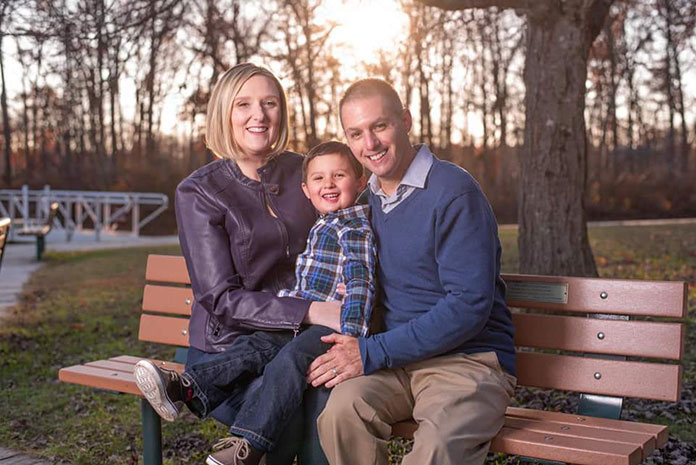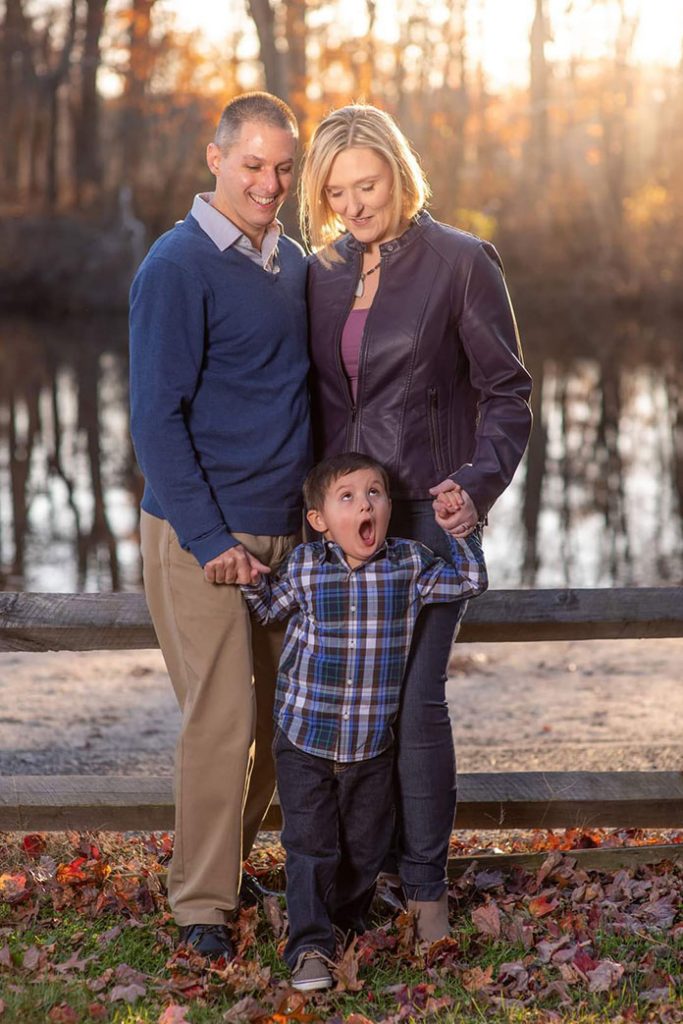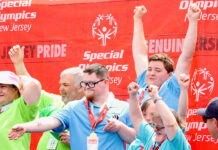
JACKSON – Many people use the expression, “this situation is a big headache” or “oh what a headache this is” but a township man knows that headaches aren’t something to minimize and recently received national recognition for bringing awareness to that fact.
Dennis Rotondi has been recognized as one of four national Headache Hero award recipients by the National Headache Foundation, a non-profit group that raises awareness and provides support for the 40 million individuals living with headache and migraine disease nationwide.
As a licensed professional counselor and lead mental health clinician for Rutgers University Behavioral Healthcare Partial Hospitalization Program, he was able to bring those skills to assist his wife Jeannette, who lives with headache and migraine disease.
Rotondi is being recognized nationally as a caregiver award recipient for his efforts for taking care of his wife Jeanette. He said that caring for his wife has given him a new perspective on invisible illness. As a therapist, this perspective has helped him better serve his clients and further his advocacy efforts.
Seeing his wife’s experience with migraine disease firsthand has opened Rotondi’s eyes to the severity of the disease, and the need for improved and effective treatments.
In an interview with the Jackson Times, the couple shared the challenges of living with this chronic condition.
Jeanette said, “It started in 2007 when I was about 29 and I had some migraine attacks. It makes it difficult to have a fulfilling life. It takes a lot of work it really affects functioning and relationships with other people.”
“I was having strobe light like symptoms and it looked like I was having a stroke or seizure and we didn’t know what was going on. I was even diagnosed with a seizure disorder. Within a year I was getting 15 attacks a month. Not all with strobe light symptoms but the head pain, the nausea, the vomiting, the dizziness and tiredness,” she added.
During an examination for another condition, Jeanette learned she had a connected tissue disorder which is a systemic condition. “We were fortunate to be referred to a headache specialist who diagnosed the migraine which at that point were chronic,” she said.
She lived most of the time in dark rooms “as light and sound are a real trigger. The attacks were lasting for at least three days and none of the medications were working. In 2014 I was finally approved for Botox. Insurance was giving us a difficult time. You have to fail at every other treatment first before they will approve it. The Botox did help.”
The Botox decreased the number of attacks which were not less debilitating. “I could get up I could engage a bit and I wasn’t stuck in that dark room. I was able to volunteer more.”
The following year she learned that she could not have a child and needed a surrogate because “of the medications and the tissue disorder. I had my son (Dennis Jr./DJ) and he was born on his due date which was on my birthday,” she added.
She was put on another medication that helped the time between where attacks would occur two years ago, she was put on Aimovig which is taken once a month that decreased them more. “I can now function a lot better. I am a year back to seeing patients as I am a social worker so I am back doing that as well.”
She volunteers for the organization Chronic Migraine Awareness doing development and strategic planning. “It really was hard for seven years. My husband had to take family leave because there were so many doctor’s appointments. He is a great person so I am glad he was able to be recognized.”
Her husband is a licensed professional counselor and has done a lot of advocacy work and ran a support group at Retreat Migraine run by a coalition of headache and migraine disorders and “Headache on the Hill which is an advocacy event where you go and meet with Congress and your representatives,” Jeannette Rotondi said.
Her husband said, “From the care partner’s perspective things are in flux a lot and we come to terms with that. Sometimes things come up and Jeannette starts the day and it is not a good day and a migraine is happening. We adjust things. We have a five-year-old so there are challenges to go along with that to begin with,” he said.
“What you learn with this journey is not have your expectations set in stone and to have more patience and empathy. You learn to adapt a bit better,” Rotondi said.
He also worked on a resources guide to help those like his wife to reach out to various sources for help which was for the Global Healthy Living Foundation. “It also helps to get support for yourself because you aren’t going to make it as a couple or family if you don’t take time for yourself (as a care partner) because you are trying to help the person but you can lose yourself in the process.”

Other projects he is working on include a caregiver tip guide, a Zoom support group and a Facebook support group.
The National Headache Foundation founded in 1970 is the oldest and largest foundation for patients with headaches. Its vision is “A World Without Headache.” The Foundation is the premier educational and informational resource for those with headache, health care providers, and the public.
Mary Franklin, the Foundation’s executive director said, “the work of the Foundation is through education, raising awareness, advocacy, and research. It is estimated that 38 to 40 million Americans are living with migraine, and less than 600 physicians have received subspecialty certification in headache medicine – meaning that there is only one physician for every 85,000 people living with migraine disease.”
In order to help people, access quality and safe healthcare for their headaches, the Foundation has established the Certificate of Added Qualification in Headache Medicine (AQH) for physicians, nurse practitioners, physician assistants, dentists, and clinical psychologists who treat headache patients.
“The exam is offered twice a year in all 50 states. We have supported research efforts by physicians and scientists into the diagnosis and treatment of headache. We hope to provide support to those conducting patient centric research and to determine how patients have been denied access to care,” Franklin said.
She added “at the national and state levels, we are informing policymakers and the general public of the need to help patients get access to safe and appropriate care. We are reaching out to employers throughout the US to provide education for their staff and support in their efforts to minimize the costs and the personal/ social impact of chronic headache.”
Franklin said, “we also hope to educate and encourage those patients with migraine disease and headache disorders to become self-advocates with their healthcare practitioners, insurers, employers, and families.”
For more information visit headaches.org.”







